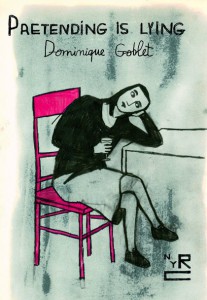In this week’s dispatches, we travel to Hong Kong to remember wuxia writer, Jin Yong, who passed away late in October. More recently, Hong Kong played host to an international literary festival that was unfortunately plagued by controversy. Elsewhere, National Novel Writing Month kicks off in the UK, even as two large publishing houses begin outreach initiatives, and another lands itself in a Twitter controversy.
Charlie Ng, Editor-At-Large, reporting from Hong Kong
In recent weeks, Hong Kong’s literary scene has been clouded by loss and anxiety. On October 30th, the prominent Hong Kong martial arts fiction writer Jin Yong passed away. His oeuvre of fifteen fictional works spawned numerous film and TV adaptations, and even popular computer games widely played by young and old alike in the Sinophone world. The Jin Yong Gallery at the Hong Kong Heritage Museum has set up a condolence point for the public to commemorate the wuxia fiction master from November 13th to 30th.
At the same time, this year’s Hong Kong International Literary Festival took place from November 2nd to 11th. The festival experienced an unexpected setback when the main venue provider, the Tai Kwun Centre for Heritage and Arts, abruptly decided to cancel the venues for two talks involving Chinese dissident writer Ma Jian, namely “Hong Kong through the Lens of Literature” and “Ma Jian: China Dream”. The English translation of Ma’s most recent work, China Dream, has just been published by Penguin Random House, while the original Chinese version is forthcoming from a Taiwanese publisher. The cancellation provoked a fierce reaction from local literary and cultural circles. PEN Hong Kong issued a statement to express the organisation’s concern over Tai Kwun’s self-censorship and its threat to Hong Kong’s freedom of speech. Tai Kwun finally withdrew the cancellation and restored the events.
One of the festival’s panels, “Hong Kong through the Lens of Literature” (moderated by Asymptote’s Editor-At-Large for Hong Kong, Charlie Ng), featured a vibrant conversation between Hong Kong writers Ng Mei-kwan, Hon Lai-chu, and Ma Jian on the current state of Hong Kong literature and its possible future developments. The three writers affirmed the uniqueness of Hong Kong literature as a varied body of creative writing that expresses Hong Kong’s identity and experience and is shaped by special historical and linguistic contexts. In the nearly-cancelled “Ma Jian: China Dream” panel, Ma also engaged in a dialogue with moderator Maura Cunningham about his satirical dystopian novel China Dream, which presents a scathing portrait of Chinese president Xi Jinping’s grand vision of national greatness.





